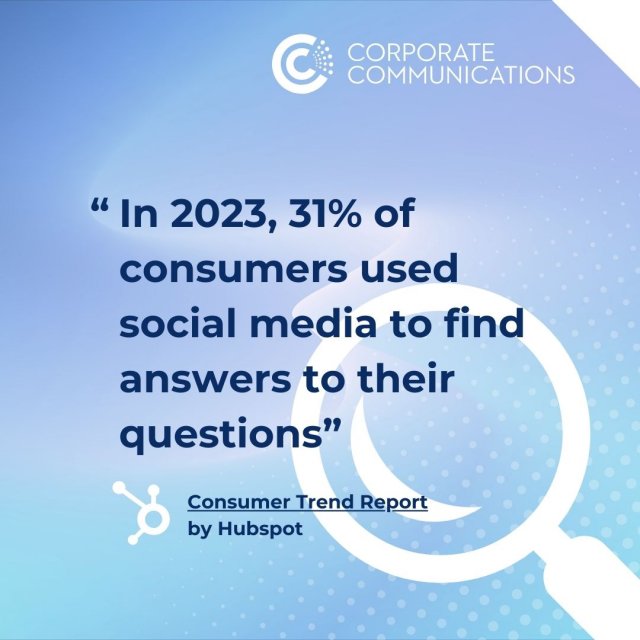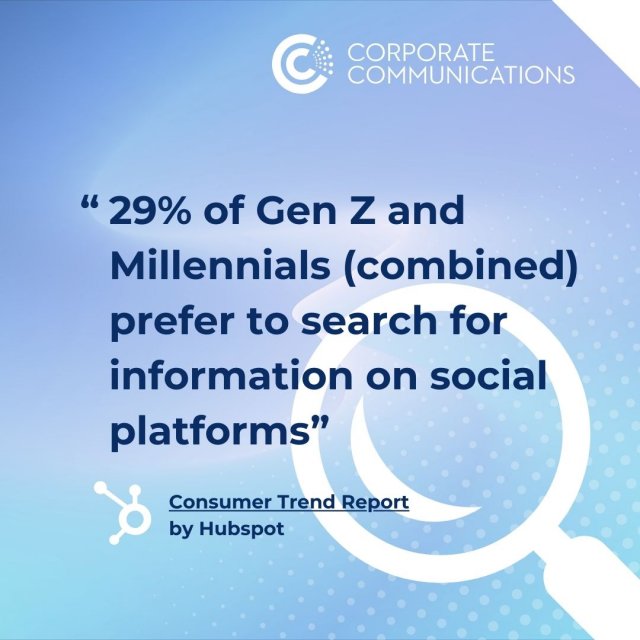We are seeing a change in how consumers search, especially among younger generations. Gen Z and Millennials are shifting their search habits from traditional search engines, like Google and Bing, to social media platforms, like TikTok, Instagram, Twitter, and even Reddit, when looking for information or searching for products. Discover how your business can adapt to these changes and maintain your rank.

AI Generated Content
With the rise of AI-generated content, search engines are starting to fill with low-quality content that consumers can’t trust. This is a driving factor for consumers to use social media as a search engine if they haven’t begun already.
Custom Search Results For Consumers
In 2024, consumers want and expect results that are tailored to them. Instead of sifting through search results on Google, why not go to a social platform that knows your likes and interests and can share customized recommendations based on your social media habits? This is exactly what younger generations are doing now.
All social media users have experienced the “algorithm” suggesting oddly specific content that relates to them, think TikTok’s For You Page, or Instagram’s Search & Explore page. So why wouldn’t savvy consumers use this to their advantage? They can get specific search results that are more likely to interest them, based on endless data collected on their social media habits. This means less sifting through results that are meant for a wider audience and more success finding results made for them.
Social Proof to Drive Conversions
Using social media as a search engine also allows consumers to view user-generated content (UGC), giving them insight from people who have directly experienced a product or service. In 2022, a study from Trustpilot found that 66% of US consumers said that reviews were the most influential information in their buying process, proving that genuine reviews are vital for converting customers. A unique aspect of social media is how social it is. Consumers can ask questions in the comments of a post and a lot of times, the original user responds. This also creates a conversation with other social media users commenting on the post. Say the post is a bad review of a product, a consumer can go to the comments and are likely to see recommendations from other users of similar products that worked better. So not only do consumers get more accurate reviews, but they also don’t have to do an additional search for alternatives, it’s all right there! Again, this saves the consumer time and streamlines the buying process.
A Picture (or Video) Is Worth A Thousand Words
Reading reviews on Google or another search engine doesn’t always mean consumers will get a picture of the product or service, let alone a high-quality image that accurately reflects it. This is where social media shines. Platforms like Instagram, YouTube, TikTok, Facebook, etc. are highly visual platforms, so when someone searches on social media, they are certain to get images and videos along with a review. Since social media is visual and typically short-form content, the results are easily digestible, not to mention quicker than sifting through written reviews.
How Your Business Can Adapt to The Change in Search Habits
This shift in search behavior and reliance on social media is impacting Search Engine Optimization (SEO).
- Make sure your business is on social media - doesn’t have to be all of the platforms (nor would we recommend that) - develop an active presence to build your credibility and post regularly
- Use relevant keywords in your bio and your posts on social media
- Engage with your audience on social media - respond to comments and reshare content that your audience has shared about your brand
- Utilize hashtags in your posts - this helps your content be more discoverable, but make sure to focus on quality content first before diving into hashtag research
- Add a link in bio tool to your social media to make it easier for consumers to get to your website; and vice versa, add links to your social media accounts on your website
- Use geotags on your posts to help gain traction in local search results
The best thing you can do for your brand on social media is to be consistent and focus on high-quality content before anything else. Make sure to optimize your content for social media searches, making it easier for consumers to discover your brand and more likely to engage with your posts. This will help to rank your business higher over time.
Let us help you harness the potential of social commerce and elevate your digital marketing strategy. Contact us today to learn more!



